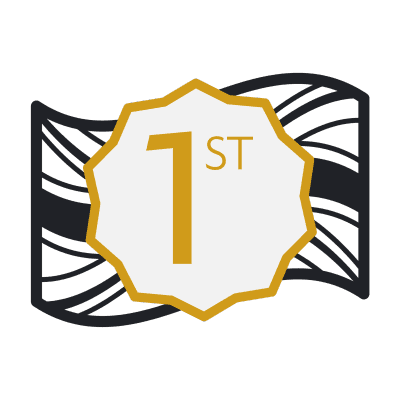Discover new and effective ways to teach and facilitate learning in clinical education.
Join our flexible online short course and learn to maintain an effective learning environment and engage a range of different learners.
- Explore a variety of teaching and feedback methods, including the latest innovations in clinical education teaching.
- Examine the underpinning principles behind teaching and feedback methods, to critically develop your knowledge and understanding.
- Learn online with a highly experienced team, actively engaged in clinical education and pedagogic research.
Who can join this online clinical education course?
You can apply to join this course if you have a health care qualification or are involved with the teaching and facilitation of clinical education.

Build credits towards a Masters degree
This online course is part of:
You can use the credits you earn on this short course towards any of these postgraduate qualifications.
What you’ll study
In this online course, you’ll develop knowledge and experience in the systematic approach to teaching, which aims for a better understanding of complexity.
You’ll explore the underpinning principles and latest innovations in a range of teaching methods, including:
- Small-group teaching
- Large-group and lecture-based teaching
- Feedback
- Modalities supporting learning in clinical education, including simulation, flipped classroom learning, teaching with patients and patient partners, and online approaches to teaching and facilitating learning in clinical education.
By the end of this course, you’ll be able to...
-
Show a critical understanding of approaches for the delivery of teaching and facilitation of learning in clinical education.
-
Outline and critically explain the purpose and methods for effective feedback.
-
Engage in critical reflection as an educator through the process of peer review.
-
Continue to develop and expand your teaching skill set throughout the course and beyond.
Choose the University of Aberdeen for online clinical education courses

Trusted clinical education training
We’ve been training outstanding clinical educators in the NHS, military, private and overseas health sectors since 2016.

Research-led teaching
Your teaching is informed by active researchers from the Institute of Education in Healthcare and Medical Sciences.

1st in the UK for Medicine
Study with a university ranked 1st in the UK for Medicine (Guardian University Guide 2024).
How you’ll study
Online learning
Teaching and Facilitating Learning in Clinical Education is delivered flexibly, 100% online. You can learn with us anywhere, with no need for a study visa.
Your teaching
Teaching is delivered through MyAberdeen, our online Virtual Learning Environment (VLE). It holds all the materials, tools and support you’ll need in your studies. Take a look around MyAberdeen.
You can access your learning materials on computer, smartphone and laptop, 24 hours a day. You’ll find a range of resources at your fingertips, including:
- videos lectures and tutorials to stream or download
- optional live online tutorials
- reading materials
- activities
- discussion boards with your peers and tutors
- online access to our award-winning Sir Duncan Rice Library.
Optional live sessions
We have occasional live sessions online at fixed times. These include opportunities for you to develop a community of practice with your online colleagues, as well as optional question-and-answer and drop-in sessions with your tutors.
Near-peer learning
We also promote and facilitate opportunities for near-peer learning as part of the course, valuing the experiences of students enrolled on the course.
Your tutors
You’ll learn from an experienced, multidisciplinary team of academics with healthcare professional backgrounds, including nurses, doctors, scientists, anatomists and psychologists. They’re actively engaged in clinical education and pedagogic research.
This course is delivered by our School of Medicine, Medical Sciences and Nutrition.
You’ll be assessed entirely online.
There are three assessments split across the course, all submitted online:
- Written reflective account (20% of your final grade).
- Written submission (20% of your final grade).
- Development of a poster (60% of your final grade).
This course totals approximately 150 hours of study and assessment time. That’s around 10 – 15 hours per week.
This time includes accessing course materials, completing activities, and undertaking your own self-directed further reading and preparation for assessments.
We do provide a study planner/timetable as a guide, but you can largely set your own study hours each week to cover the materials. MyAberdeen is available 24/7, so you can log in and study when it suits you.
Activities at fixed times
Activities at fixed times include live question-and-answer and discussion sessions. However, these are not mandatory, as we appreciate it can be difficult to attend around other commitments. All sessions are recorded for later viewing.
Deadlines for formal/summative submissions are pre-set but there are options to apply for extensions if circumstances meet the criteria for approval.
Our first-class support structure will ensure that you aren’t alone in your studies. You’ll have contact with your coordinator via email, MyAberdeen and Microsoft Teams. You can use social media and discussion boards to chat with your fellow students too.
We provide a wide range of services to support you in your studies and beyond:
- Careers and Employability Service
- Disability support
- IT support
- Library support
- Student Support Service – help with finances, stress, wellbeing and non-academic issues
- Student Learning Service – study support, with advice sessions available via phone or Skype
- Aberdeen University Students’ Association (AUSA) – run by students for students
- Toolkit – clever apps and free training that can make your study life easier
Wherever you are in the world, you’ll feel part of our very special Aberdeen learning community.
Your course coordinator

Helen Gray
Helen is a Lecturer who leads our MSc in Advanced Clinical Practice. A dual registered nurse, she specialises in critical care nursing and practice education.
Helen has worked as a bedside nurse, team leader and educator in the UK, Canada and USA. She’s been training NHS advancing practitioners for over 10 years.
View Helen’s profileWhere this will take you
Towards a Masters
You’ll earn 15 credits at Masters level (SCQF Level 11) with this course. You can use these credits towards our:

Masters in Advanced Clinical Practice
Develop your advancing career in healthcare with this uniquely flexible MSc, delivered part-time via blended learning. 10% discount for NHS staff.
View MSc Advanced Clinical Practice
Masters in Clinical Education
Become an outstanding clinical educator with our distance learning clinical education training. Study online with us and earn your MSc, PgDip or PgCert in Clinical Education while you work. 10% discount for NHS staff.
View MSc Clinical Education
Earn an accredited Postgraduate Certificate in Clinical Education
The credits you earn with this course count towards our PgCert in Clinical Education.
It’s accredited by the Academy of Medical Educators (AoME).
Move on to complete the PgCert successfully and you can apply for AOME membership without the full application and exam process.
Build your learning with more short courses
We have a range of online healthcare and medicine short courses you can use to earn in-demand skills.
Many carry credits you can build up into postgraduate qualifications, including Masters degrees:
Careers
This course will support the development of your own practice in clinical education. And it can equip you to further engage in future opportunities to facilitate the learning of others in healthcare.
Job roles that previous students taking this course have entered include:
- clinical teaching posts
- practice education/facilitation roles with a range of healthcare professional education providers.
Continuing Professional Development (CPD)
Your employer or professional institute may recognise this course for CPD hours. Talk to your employer or institute to find out more.

Free career support
Access our free careers service while you study.
- 1:1 appointments
- CV checks
- Interview prep
- Job opportunities
Entry requirements
For this course, you’ll apply through our Applicant Portal. It allows you to upload relevant qualifications and documents. Our admissions team will then review these and contact you.
Documents you’ll need to apply for this course
- Degree certificate
- Degree transcript, if you have one
- CV
- Personal statement
Apply now
Start with our step-by-step guide. It explains degree transcripts, what to write in your personal statement and how to use the Applicant Portal.
Apply as early as you can. This is so we have time to review your application and get a decision to you. We also want to ensure you have time to enrol before teaching starts.
January 2025 intake
Teaching starts on 27 January 2025.
Application deadlines will be announced in due course.
Entry requirements
We welcome students from all over the world.
See the minimum entry requirements above. If you do not have qualifications from the UK, check equivalent qualifications from your country.
Visa requirements
You do not need a student visa to study online with us.
English language requirements
Teaching is delivered in English.
If English is not your first language, use our English requirements checklist to see if you need to provide evidence of your English language skills when you apply.
English language tests and scores
If you do need to provide English language test scores, these are the tests and minimum scores we accept.
These are our Postgraduate Higher requirements.
IELTS Academic, IELTS UKVI Academic, and IELTS Online (not IELTS Indicator or IELTS General Training)
- 6.5 overall
- 5.5 for listening and speaking
- 6.0 for reading and writing
TOEFL iBT and TOEFL iBT Home Edition
- 90 overall
- 17 for listening
- 21 for reading
- 20 for speaking
- 21 for writing
- TOEFL DI code is 0818
Cambridge English: B2 First, C1 Advanced, or C2 Proficiency
- 176 overall
- 162 for listening and speaking
- 169 for reading and writing
LanguageCert Academic/LanguageCert Academic SELT
- 70 overall
- 60 for listening and speaking
- 65 for reading and writing
LanguageCert International ESOL B2 Communicator (Written and Spoken) – Online / In-centre
- Overall High Pass
- 33 for listening, reading and speaking
- 38 for writing
Oxford ELLT Digital – English Language Level Test Online
- 7.0 overall
- 5.0 for listening and speaking
- 6.0 for reading and writing
PTE Academic (online test not accepted)
- 62 overall
- 59 for listening, reading, speaking and writing
Duolingo – tests taken from 1 July 2024 onward
- 120 overall
- 95 for listening and speaking
- 105 for reading and writing
University of Aberdeen English Pre-sessional Programme (PSE)
- Pass
- Valid for one year. Refresher can be offered if out of date
Pre-sessional academic English preparation programmes undertaken at other UK universities
- Pass at an equivalent of 6.5 (C1)
- B2 in all four skills
- Certification must be within one year prior to the start of your course
For more information about language qualifications see our English Language Requirements page.
You will need access to:
A computer (PC, laptop or Mac) operating on either:
- Windows 10 or later
- macOS 10.15 (Catalina) or later.
Most teaching materials are smartphone- and tablet-friendly. But we recommend a proper laptop or desktop for completing assignments comfortably.
Reliable internet access
We recommend:
- a wired connection
- a minimum download speed of 2 Mbps so you can take part fully in live sessions.
Speakers or headphones
- We recommend a headset with built-in microphone and earphones if you’re likely to study in an environment with background noise.
- A webcam is optional, but you may like to use one for some interactive sessions.
Software
We’ll give you access to Office365 applications. This means you can use online versions of Microsoft Word, Excel, and PowerPoint and install these programs on up to five personal devices.
If your course requires specialist software, we’ll provide you with access to this and a licence that lasts throughout your studies.
See our detailed IT requirements for more information.
When you study with us, you can expect a first-class support structure so that you’re never alone in your studies.
But learning online does mean you have to motivate yourself and manage your own time.
Your most important commitment will be time – the time to work through, reflect on and understand your teaching materials.
Before you start a course that involves a high degree of independent study, we recommend looking at the time you will be able to devote to your studies each week:
- Be realistic
- Create a weekly schedule as a guide
If you have any questions about studying online, get in touch with our friendly team. We’re here to help.
Fee payment
Your course fee needs to be paid in full before you start your course.
We accept payment via Visa Debit, Visa Credit and Mastercard.
Ways to save
You may be able to get help funding this course via:
- discounts – if any discounts are available for this course, they’ll appear in the section below
- employer sponsorship – we accept full and partial fee payments from sponsors.
Find out more about funding options.
Student card
All our students are entitled to a University of Aberdeen student card. This gives you access to a range of student discounts around the city and online.
Learning resources
Access to all the books and resources you need are included in your tuition fee. They’ll be made available to you online and you do not have to buy your own copies.
Printing
You may wish to set aside a small budget for printing, depending on how you like to work.
The minimum entry requirements for this course are:
- an honours-level degree, usually in healthcare (eg, MBChB, Nursing, BDS, Physician Associate), or
- an honours-level degree in a healthcare-related area (eg, psychology, biomedical science).
- You should also be currently involved in teaching practice.
You’re also welcome to apply if you have:
- other relevant qualifications, and
- professional experience with supportive references.
Apply for this course






